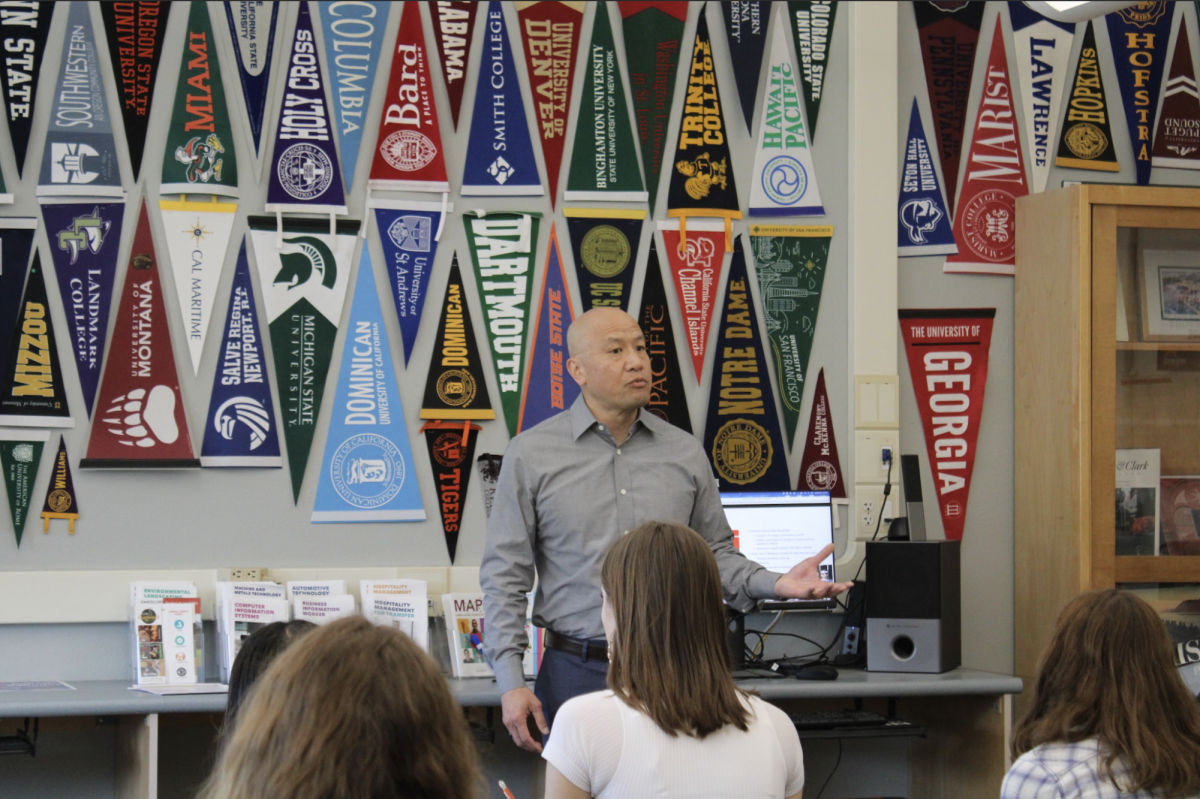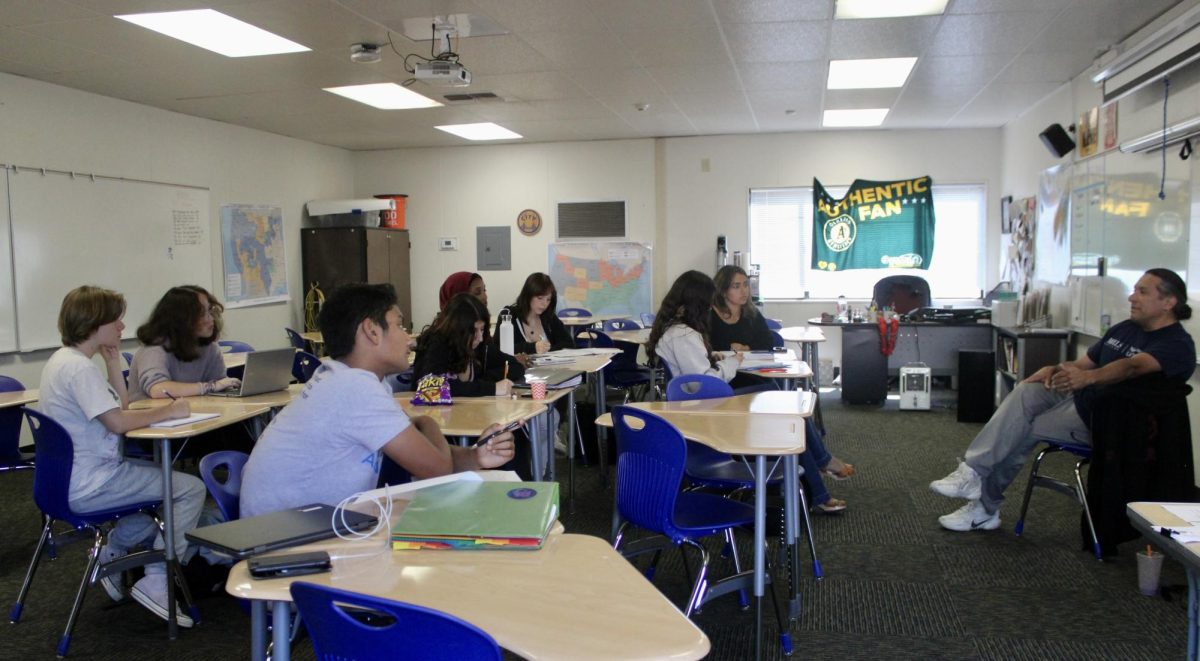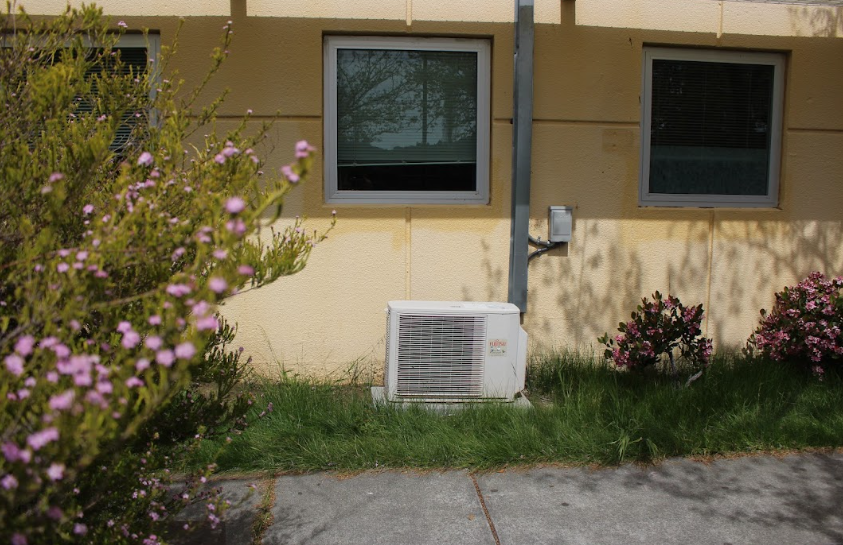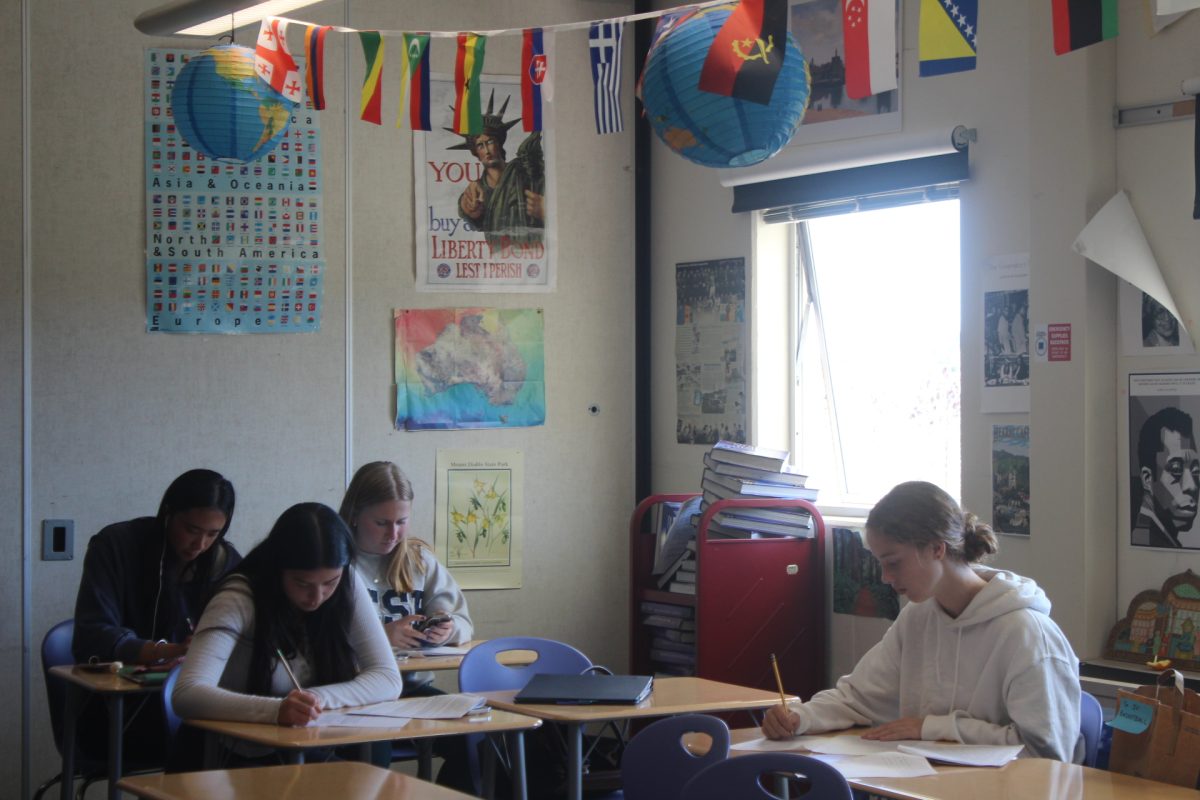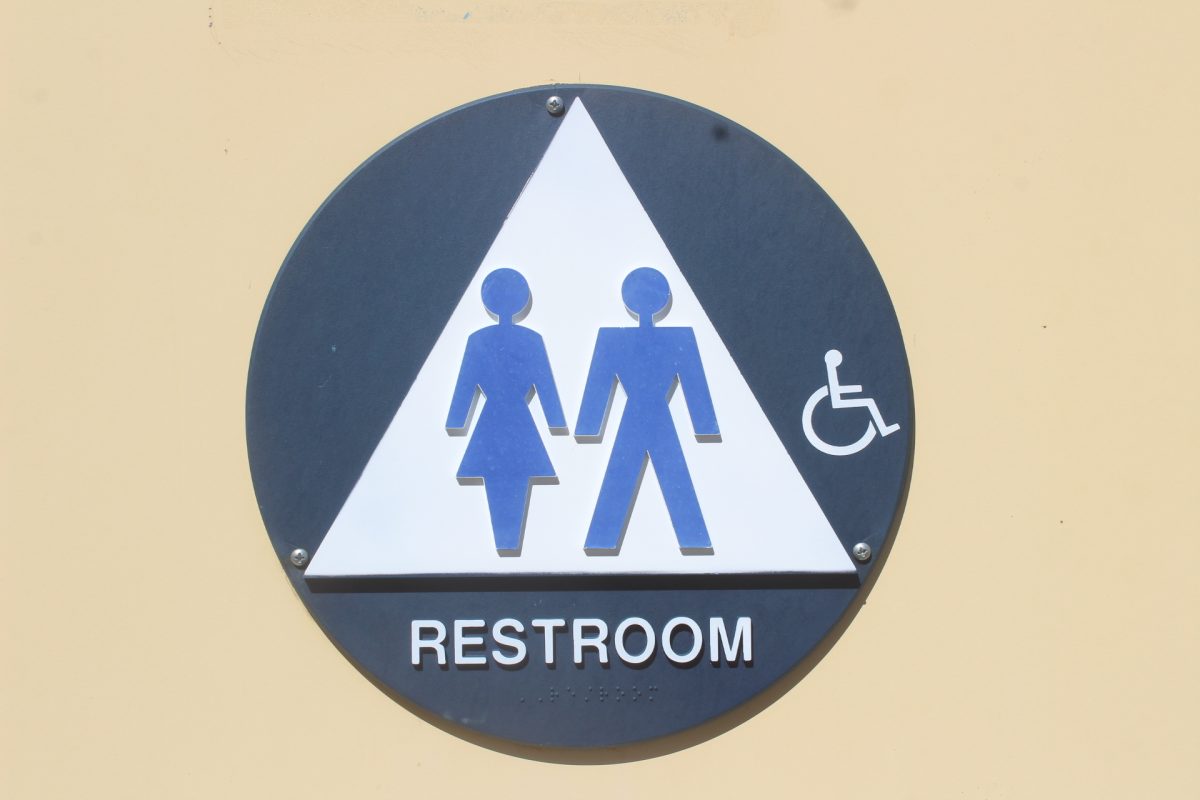Drawn together by their friendship and shared interest in the laws of rocketry, seven juniors are aiming to qualify for the National Competition of the Team America Rocketry Challenge (TARC) in Virginia this May as part of Redwood’s rocketry team.
TARC is an annual nation-wide aerospace design and launch competition for student teams of seventh to twelfth graders throughout the United States.

The rocketry team, named Alpha Strike Force, consists of juniors Andy Ehrenberg, Danny Geitheim, Zack Kopstein, Max Lukianchikov, Nate Orwig, Isaac Perper, and Matt Ross. Half of them are enrolled in an online course at Redwood called Independent Science Research, while the other half work on the rocket on their own time.
Before March 30, each team is allowed infinite attempts at launching their rocket, but they must declare two or three of these to be official attempts prior to launch. The Alpha Strike Force is currently making its final preparations to launch their rocket as close as possible to 800 feet during these official attempts to be one of the top 100 teams that qualify for the National Competition.
Specifically, in order to qualify, teams must “lift a fragile raw egg payload to an exact altitude in the range of 800 feet and have a flight duration of 48 to 50 seconds, at the end of which it returns this payload to earth safely and undamaged with a specified parachute recovery system,” according to the TARC website.
While the grand prize of $60,000 is a long shot, the team stressed that they have a chance at winning.
After the team’s first unofficial launch reached a maximum height of 819 feet, Kopstein thinks that the team only needs to make a few minor adjustments in order to declare an official launch.
“We’re essentially rebuilding our initial rocket, while making a few changes in the size of the fins and some of the internal structure,” Kopstein said. “With these minor adjustments, we expect our next launches to give us more consistent results.”
The team’s rocket is foundationally made of cardboard, balsa wood, and epoxy. Each team is also required to use an NAR (National Association of Rocketry) safety-certified model rocket motor to power its flight.
The Alpha Strike Force’s mentor, Kentfield resident Ken Biba, held the amateur world record for his rocket launch of over 100,000 feet in the air until last year.
“We have an advantage over many teams since we have Ken, who held the world record, as well as many materials and resources readily available to us,” Lukianchikov said. “There are some things that simply take a lot of time that the internet cannot show you, and Ken provides that kind of knowledge and experience.”
The team meets about once a week to work on the rocket.
“Occasionally joking around can impede the difficult building process,” Perper said. “We’re all really good friends outside of the team, however, making our success all the more enjoyable.”
The team is preparing for their next practice launch, which will take place at Snow Ranch on Saturday, Feb. 14. According to Lukianchikov, the team will perform a few practice launches that day, and if these go well, they will declare the next launch official.
“The goal in the three trials is to achieve consistency. We work about 10 hours each week, doing little things here and there,” Lukianchikov said.









